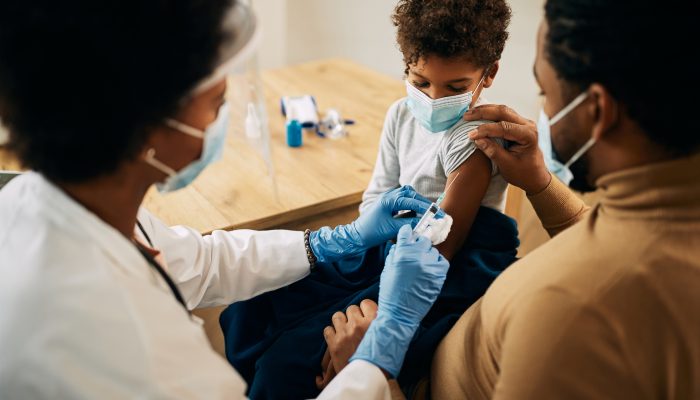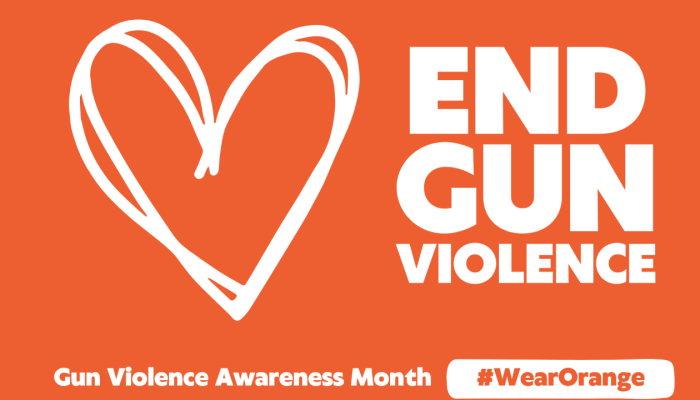What happened?
The Philadelphia Department of Public Health is working with Montgomery County Department of Health and Human Services and the Pennsylvania Department of Health to identify people who may have been exposed to a confirmed measles case in an unvaccinated child from Montgomery County.
If you were in any of the locations below during the listed times, check to see if you’re immune to measles and watch for symptoms.
Where & when was the exposure?
- China Airlines Airport Shuttle Bus | From February 25 at 9:30 p.m. to February 26 at 3:15 a.m.
- Route: New York’s JFK Airport Terminal 4 to Pho Ha Saigon, 757 Adams Avenue, Philadelphia, PA 19120.
- While passengers exited the bus in front of businesses in New Jersey and Philadelphia, these locations were closed at the time and are not exposure sites.
- True North Pediatrics Associates of Plymouth – 3031 Walton Rd., #C101, Plymouth Meeting, PA 19462 | February 26 from 11:45 a.m. to 2:15 p.m.
- CHOP King of Prussia Emergency Department – 550 S. Goddard Boulevard, King of Prussia, PA 19406 | February 26 from 12:52 p.m. to 3:02 p.m.
Why measles is dangerous: Key facts
Did you know? Measles is one of the most contagious diseases in the world. Here’s why:
- 9 out of 10 people who aren’t protected and are exposed to measles can get sick.
- 1 in 5 unvaccinated people in the U.S. who gets measles are hospitalized.
- Measles complications can be severe, especially for children:
- 1 out of 20 children with measles gets pneumonia, which is the most common cause of death from measles in young children.
- About 1 out of 1,000 children with measles develops brain swelling.
- Pregnant people who aren’t vaccinated are at higher risk for preterm birth or low-birth-weight babies.
- Even with the best care, 1 to 3 out of 1,000 children with measles will die from severe illness.
Measles can affect anyone who isn’t immune to the disease, but it is especially dangerous for babies who are too young to get the measles vaccine and young kids who haven’t received the vaccine. While at least 94.5% of children in Philadelphia are vaccinated by age 6, more cases of measles in the region puts our communities at risk.
The good news? Measles is preventable with the MMR vaccine!
The MMR vaccine (measles, mumps, rubella) is 97% effective at preventing measles when two doses are given. One dose is 93% effective.
Did you know? Before the vaccine became widely available, measles outbreaks would kill over 2.6 million people each year around the world. MMR vaccine has been safely used for decades and saves lives.
If you or your child need vaccination, now is the time to get protected.
Who should get a measles vaccine?
Children:
- 1st dose: 12–15 months old
- 2nd dose: 4–6 years old
Adults:
- Born before 1957? You’re likely immune and don’t need another vaccine dose.
- Vaccinated between 1963 and 1968? If you received the inactivated vaccine or aren’t sure which vaccine type you received, you’ll need another dose.
- Received only one dose? Get a second dose if you’re at high risk for exposure (a health care worker, traveling internationally, a student in a higher education program) or live with someone who has a weakened immune system.
If you’re traveling internationally:
The following groups should receive a vaccine dose at least 2 weeks before travel:
- Infants who are 6-12 months old (they’ll still get the standard 2 doses for kids).
- Children at least 1 year old who haven’t received their second dose.
- Adults with only one dose and no test results that show they’re immune to measles.
Where to get a free measles vaccine
You can get a free MMR vaccine at City health centers Monday through Friday from 9am – 1pm:
- Health Center 3 – 555 S. 43rd St. | (215) 685-7504
- Health Center 4 – 4400 Haverford Ave. | (215) 685-7601
- Health Center 5 Annex – 2001 W. Berks St. | (215) 685-2933
- Mattie L. Humphrey Health Center (Health Center 9) – 131 E. Chelten Ave. | (215) 685-5701
- Strawberry Mansion Health Center – 2840 W. Dauphin St. | (215) 685-2401
No insurance? No problem. These clinics provide free vaccines for everyone.
Kids can also get vaccinated at their pediatrician’s office or at a retail pharmacy (call the pharmacy for age requirements).
What to do if you were exposed to measles
If you’re immune:
No action is needed. You’re considered immune if you don’t have a weakened immune system and meet one of the following:
- Received two doses of MMR vaccine.
- Have a blood test showing immunity to measles.
- Were born before 1957.
- Have documentation of a past measles infection.
Received just one dose of MMR vaccine? You’re still protected against measles and usually don’t need to stay home away from others (also called quarantine) after an exposure. However, you may need a second vaccine dose – contact your healthcare provider or pediatrician immediately to find out more.
If you’re NOT immune:
Take immediate action. This is very important for babies too young for vaccination, pregnant women without immunity, and people with weakened immune systems:
- Call your healthcare provider or pediatrician ASAP
- You may qualify for post-exposure treatment, which can help prevent measles.
- If you or your child feel sick, call ahead before visiting the clinic or hospital. Because measles spreads easily, special steps may be needed to protect others.
- Ask them to call the health department.
- Stay home (quarantine) for 21 days. Avoid contact with others, especially if they’re unvaccinated or have a weakened immune system.
- Monitor your symptoms for 21 days after exposure.
If you’re not sure about your immunity:
- Call your healthcare provider or pediatrician ASAP.
- They can check your vaccine records or, if needed, order a simple blood test to confirm your immunity.
- Tell them if you or your child feels sick.
- Stay home, wear a mask in indoor public spaces and around anyone who is unvaccinated until you confirm your status if you must go out.
Symptoms of measles
Measles symptoms usually appear 7-14 days after exposure and develop in stages:
Early symptoms
- High fever
- Cough
- Runny nose
- Red, watery eyes
Later symptoms (2-5 after symptoms start)
- Tiny white spots inside the mouth (Koplik spots)
- Measles rash, which usually starts as flat spots on the face, then spreads down the body
- High fever that spikes when the rash appears
Rash on different skin tones
- On lighter skin, the rash can appear red
- On darker skin, it may look purple or darker than surrounding skin
Final takeaways – What you need to do
- Check if you were exposed.
- Get vaccinated if you haven’t already.
- If you’re exposed and not immune, stay home & call your doctor.
- Know the symptoms and act fast if you feel sick.
Measles is highly contagious, but completely preventable with vaccination. Don’t wait – check your status today!
Visit the Health Department’s Immunizations Program, Preparedness Program (under Infectious Disease), and Health Alerts for more information.




